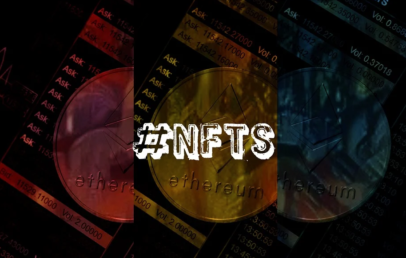If you are familiar with Ethereum, you must probably have heard about smart contracts.
Unlike other contracts that we all know, smart contracts aren’t legally binding contracts that could make you pay a hefty amount of money or even bring you to prison once breached. However, there are still legal steps that should be undertaken to connect legally binding consensus between parties.
Although blockchain technology is mostly known as the foundation of Bitcoin, it has made headway underpinning the digital currency.
This contract functions to programmatically carry out business logic that executes different transactions, tasks, and processes that were programmed to them in response to the established conditions.
Smart Contracts in Easy Terms
Smart contracts are digital agreements that can be executed and run on a Blockchain. It responds to every transaction made by executing code. It can also hold funds, tokens (e.g., Ether), and states on the ledger.
You can see smart contracts as state machines that run in the blockchain system with a public address where you can pull or push the state. The transactions can pass both data and funds. Smart contracts possess that ability to move money, documents, information, etc., between people, and it works automatically.
In a nutshell, smart contracts are works for two main purposes:
- Run code that executes the action for updates or funds in the state of contract
- Hold state and funds that are placed in Blockchain under the contract’s address.
For instance, you want to make a smart contract for sports betting. You can make a smart contract that stores the best/funds for a game and make a contract that will distribute the bets once the winner is determined. Smart contracts run automatically once specific rules are met.
Smart contracts can be utilized in the future to automate every kind of financial transaction— cheaply and safely.

Take this as another example. If you’re selling a house, you will need to broker to mediate between you and the buyer. After the buyer of your house sends some funds to the broker, the broker sends them to the house. However, the broker takes a portion of the money as a fee, a service fee.
On the other hand, if you use a smart contract as a broker, you only need to send the deed to the smart contract, and the buyer will send the payment likewise. After that, the contract will automatically carry out its mission sending the seller the money and the deed to the buyer. There will be no need for you (the seller) to pay the broker.
Various industries benefit from blockchain-based smart contacts as part of their chain supply. Automated payments through smart contracts can reduce fraud and overbill.
Even the music industry can benefit from it when they record the ownership of music within the blockchain and create a smart contract to guarantee that royalties will be paid every time music is used for commercial purposes.
The automobile industry could also benefit greatly from smart contracts and blockchain through storing available information about ownership, accident, and vehicle maintenance.
Smart contracts allow trusted agreements and transactions to be carried out amidst anonymous parties without having the need for a central authority, external enforcement mechanisms, and a legal system like brokers, banks, and the government.
Blockchain and Smart Contracts
Blockchain is perfectly suited for storing smart contracts because of its immutability and security. Smart contract data is ciphered on a ledger, making it nearly impossible to suffer information loss because it is stored within blocks.
Another advantage of blockchain technology that is incorporated into smart contacts is flexibility. Developers can put just about any type of data in a blockchain, adding a wide array of transaction options to choose from.

Blockchain-based smart contracts assist in making business processes and other transactions more efficient, cost-effective, secure, and thus, reducing the cost of transactions.
Ethereum is the most popular and commonly used smart contract platform. Ethereum’s community came up with a solidity language for writing applications with smart contracts, which are meant to run the Ethereum Virtual Machine (EVM) execution environment.
Digital Asset Modeling Language (DAML) and WebAssembly (WASM) languages also established a name among programming environments.
WebAssembly permits the developers to create smart contracts that can be integrated into other distributed ledgers through programming languages like Rust, TypeScript, JavaScript, and C. On the other hand, Digital Asset Modeling Language is designed as an entre-prise focused language that allows enforcement of privacy safeguards.
Advantages of a Smart Contract
Smart contracts have several business advantages, including:
- Improved processing speed. A smart contract can boost the process of businesses that run in various enterprises.
- Cost-efficiency. Smart contract’s word of honor is to automate business processes that stretch organizational boundaries. This can get rid of costly operational expenses and help the users save resources such as salary for hiring personnel to monitor the progress of complex processes.
- Reliability. Smart contacts can take the upper hand of blockchain ledgers to keep a verifiable record of activities related to complex processes that cannot be changed. Moreover, it supports automatic transactions that lessen the possibility of errors and ensures the accuracy of contracts.

Is a Smart Contract 100% Dependable?
Even though smart contracts could improve cost-efficiency, processing speed, and reliability, issues still need to be addressed when dividing a smart contract.
- Management. Smart contracts are not easy to manage as they are configured in a way that it’s unchangeable. Although this could be considered a security advantage, it will be so much work to create new details to the contract without making a new one.
- Security. Smart contacts secure some primary elements in a business process that associates both parties. However, hackers continue to identify new attack surfaces that permit them to compromise the primary intent of the businesses that determine the rules. There was a time when Ethereum was just starting, and smart contract hackers stole about $50 million cryptocurrency. The IEEE also documented concerns regarding the inconsistencies in the tools used to discern different intrusions in smart contract security.
What Lies Ahead of Smart Contracts?
Smart contracts are multiplex, and their capability goes way beyond simple asset transfer. They have the ability to execute transactions in a variety of fields, from processes to insurance to financial derivatives.
Smart contracts hold a great potential to disintermediate financial fields by automating and simplifying routine and repetitive processes wherein people usually pay lawyers and banks a sizable fee.

Smart contacts also exhibit a promise in automatic processes that run on edge computing devices. For instance, one utility company can offer a service wherein smart contracts will execute responses to change in the power rates in collaboration with devices built into power meters.
When the prices hold out to a given threshold, a smart contract may automatically turn the power down of power-hungry appliances through a controlled IoT controller.
There are many platforms right now that allow the use of smart contracts, including Hyperledger, Tezos, Ethereum, and Corda.
Before, a lot of people didn’t show interest in smart contacts because there was no distributed ledger or digital platform technology that could support them. However, with the continuous adoption of Bitcoin and the support of blockchain technologies, smart contracts are establishing a name with growing popularity.



